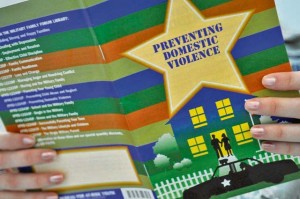
Until recently, the Family Advocacy Program’s domestic violence reporting system was unrestricted, a type of report that must be handled with the assistance of the military chain of command.
Now, under the Maltreatment Program, there’s a new policy called restricted reporting that guarantees confidentiality, unless there is a threat of imminent danger.
Restricted reporting is a powerful tool, said Carmen Schott, 86th Medical Operations Squadron family advocacy outreach manager. Often, victims are afraid to come forward for fear of ruining their career or their partner’s career, and sometimes safety is a significant concern for them.
Restricted reporting allows adult victims to openly discuss their struggles with a Family Advocacy counselor. With the focus on planning and individual treatment, there are provisions for counseling services, such as the Family Advocacy strength-based therapy, after a victim or offender attends a consultation.
“FAST is a counseling service available for couples and families facing stress, increased conflict and communication problems,” said Emily McCormick, 86th Medical Operations Squadron Family Advocacy intervention specialist. “Counseling can help the couple develop positive communication skills and address any safety issues within the relationship.”
Family Advocacy’s Maltreatment Program makes it their mission to prevent, identify, assess and treat each of the forms of domestic violence, which include physical abuse, sexual abuse, emotional abuse and neglect.
“Domestic violence is not always about the bruises or marks that can be physically seen,” Schott said. “It’s about the power and control in the relationship and the internal struggle that a person goes through, because the victim usually is in love with the offender. This is not just a co-worker, this is someone you have deep feelings for.”
Restricted reporting is available for anyone struggling with someone from a past or present intimate relationship.
“We make it our mission to be available to people in need regardless of how small or big the problems are,” said Maj. Ellen Wirtz, 86th Medical Operations Squadron Family Advocacy officer.
For more information, contact Family Advocacy at 479-2370 or 06371-402370.


